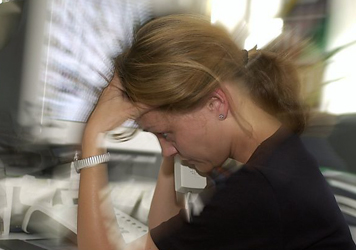Austrians believe financial worries, physical pain, loneliness, stress, and frustration about work all contribute to a reduced sense of well-being.
This may come as a surprise as previous surveys have shown Austria to be one of the happiest nations. One study published at the beginning of 2014 said that four out of five Austrians are happy with life.
“In fact, many Austrians don’t reflect this finding,” the private Modul University said in a press release.
Dr Ivo Ponocny, head of the Department for Applied Statistics and Economics at Modul University said that he believes many well-being surveys have given misleading results as they rely on ‘closed’ questions and multiple choice answers, as a more complete evaluation tends to be very time consuming. In this situation respondents tend to avoid making negative generalizations about their lives.
"Positive figures must not be falsely interpreted as proof of unburdened happiness," Dr Ponocny said.
Over a period of two years Dr Ponocny carried out 550 interviews in ten Austrian locations, asked 335 participants to complete well-being diaries and received 1,432 detailed questionnaires.
He and his team were able to identify specific regional differences.
People who lived in big cities complained about living in a built-up, urban environment and said that the quality of care for children and elderly people had a negative impact on their well-being.
Dr Ponocny said that personal circumstances obviously affected people’s happiness but that “generally speaking non-smoking, married couples and people with higher education reported the least dissatisfaction – although it was more a case of ‘satisfaction’ increasing along with education and income, rather than ‘happiness.’”
Although only represented by a small sample, self-declared ‘house husbands’ were the happiest participants in the study. Women were more likely to feel less happy if they deemed themselves to be unattractive, and older men were more likely to suffer from an unfulfilled sex life which had a negative effect on their well-being.



 Please whitelist us to continue reading.
Please whitelist us to continue reading.
Member comments